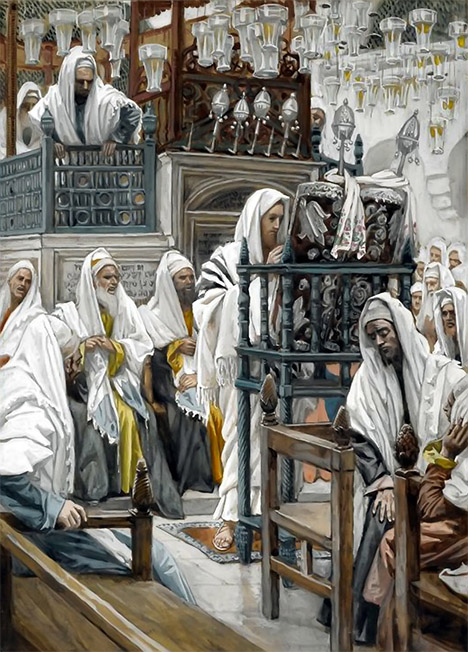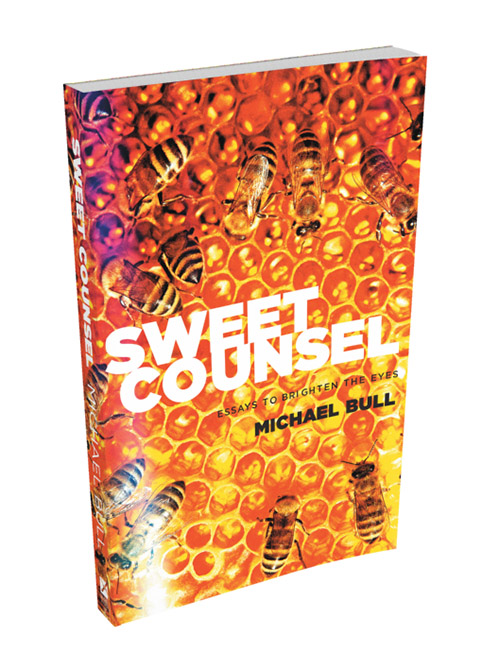The First Ascension

The analogy between human beings and animals, seen throughout the Bible, means that in the animal world there are some who represent the whole.

The analogy between human beings and animals, seen throughout the Bible, means that in the animal world there are some who represent the whole.

How will the world judge God
when given the opportunity?
For God does know that in the day you eat thereof, then your eyes shall be opened, and you shall be as gods, knowing good and evil. (Genesis 3:5)
You shall have no other gods before me. (Exodus 20:3)
Jesus answered them, “Is it not written in your Law, ‘I said, you are gods’?” (John 10:34)
The aim of the testing of Adam was to qualify him to be a co-regent with God. Rich Bledsoe argues that the question of God’s existence is not ontological but ethical at heart. History is Man’s attempt to either eradicate God’s rule, or to make God co-regent with Man.
Continue reading

Jesus’ first recorded public engagement in the Gospel of Luke comes in 4:16-29, where he speaks in the synagogue of Nazareth, his hometown. Go ahead and read it; I’ll wait. If you read the account in the English Standard Version, it sounds as the though the people of the synagogue do a complete 180° in their attitude toward Jesus: from hearing him enthusiastically, to wanting to kill him. Is that what really happened?
“O foolish Galatians! Who has bewitched you?”
Having written a (basically word-by-word) commentary on Paul’s epistle to the Galatians, one which demonstrates his use of the biblical pattern of maturity at every point and every level, it amazes me how sacramentalists are not aware that their doctrine makes them the modern targets of Paul’s ire.
The heart of typology is representation, and representation is the heart of sacrifice.
A great deal of so-called theology seems to me to be a waste of time, breath and ink. Theologians and commentators insist on applying a “lens” to Scripture, or building a case from cherry-picked particulars or accumulations of fragmented data, when the answer to the debated question is staring right back at them. Literary structure should be the first recourse, not the last. When it comes to the Bible, literary structure is the label on the tin.
Chiasms are everywhere in the Bible, yet “chiasm” is a word I had never heard before the age of 40. What’s up with Bible teachers? So, if you’re like I was, and totally unaware of these cool things, a chiasm is an occurrence of literary symmetry. Not only are these the way the entire Bible is constructed, you’ll always find them working at multiple levels. And they are not merely cool: they show us the shape of the work of God.1For an introduction to chiasms in the Bible, see Reading the Bible in 3D.
References
| 1. | ↑ | For an introduction to chiasms in the Bible, see Reading the Bible in 3D. |
The waters closed in over me to take my life; the deep surrounded me… (Jonah 2:5)
The Bible is an incredibly complex book, however it is also an incredibly consistent book. Its symbolism is a language, which means that although it is flexible enough to allow for new combinations, it has a core which remains steadfast from Genesis to Revelation. This means that, just as we have no excuse for refusing to read this book of types for what it is, we also have no excuse for misusing its types to support any otherwise unsupportable dogma.

Sweet Counsel: Essays to Brighten the Eyes is now available on amazon. It is a collection of very polished and reworked blog posts along with some new material. Here is the introduction…
“Gracious words are like a honeycomb,
sweetness to the soul and health to the body.”
(Proverbs 16:24)
If, in the language of biblical symbols, gold is solid light and oil is liquid light, then honey is liquid gold.
As the golden Ark contained the Ten Words, and the oil of the Lampstand lightened the path of the king, so honey is the Word of God in edible form. In the wilderness, manna tasted like honey wafers. In Canaan, the law of the Lord was even more desirable than its precious honey (Psalm 19:10; 119:103).
If you are a regular reader, you will have some idea of how I feel about the practice of paedobaptism. But that is only half the story. I have just as much distaste for “baptist” Christianity without a spine. I myself need a Church with a spine, a Church full of grace and light because vows are not only made by baptizands but also understood.
I believe baptists get the “vow” part right, but neglect solid accountability to that vow. Paedobaptists, on the other hand, get the accountability right, but allow the priestly vow to be taken by proxy. This is why I have used the analogy of knighthood to describe New Covenant baptism. Although paedobaptism truncates the New Covenant “boundary,” I’m in agreement with my Federal Vision friends on just about everything else.
So, with that understanding, here is a guest post by a reader, Sarah Culbertson, who, like me, has learned a great deal from the Douglas Wilson camp, where the “front end” of the Christian vow is skewed but the “back end” is right on target.
Continue reading

Some excerpts from Ben Witherington’s long summary of William A. Johnson’s short book, Readers and Reading Culture in the High Roman Empire:
Let me be clear that this book focuses on people like Pliny or Aulus Gellius or Galen, or Fronto or Lucian, but there is much to be learned from this book that can be applied, mutatis mutandis to literate Christians, their scribes, and early Christian communities of reading and writing…